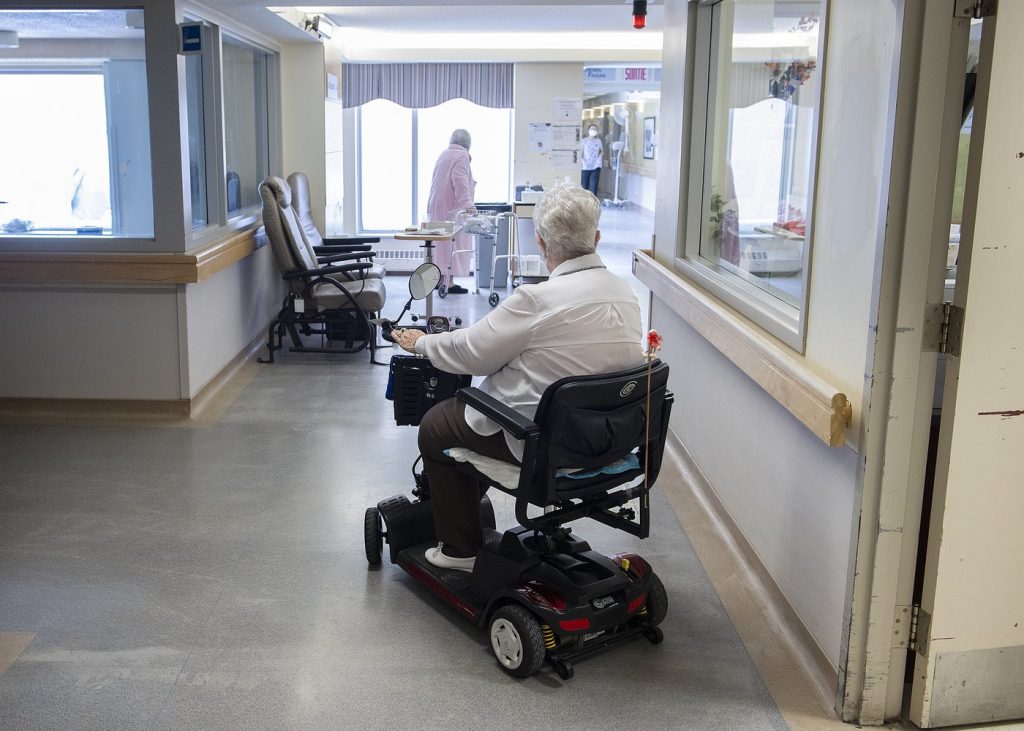First vaping cessation program in Quebec for young adults
Posted March 19, 2025 8:59 am.
Last Updated March 21, 2025 4:42 pm.
The Canadian Cancer Society (CCS) has launched its first vaping cessation program for young adults. Young people are the largest consumers of vaping products in Quebec, which exposes them to health problems.
In fact, 22 per cent of young people aged 18 to 24 vape, according to the 2023 Quebec Tobacco and Vaping Products Survey.
“Aspire à mieux” is a free support program specifically tailored to the needs of this age group. The goal is to help them break their vaping addiction. In fact, half of those who vape want to quit.
“We went to meet with young adults who vape and they were like this is what were experiencing, this is what we need to stop vaping,” says Alexandra Lalonde, Cancer Prevention Program Manager at the Canadian Cancer Society.

Lalonde believes that young people are often misinformed about the effects of vaping.
“Either there’s misinformation or it’s not talked about enough,” she said. “I think they’re aware of the risks associated with tobacco, including cigarettes, but many believe vaping is harmless.”
Currently, the long-term health effects of vaping are unknown, but we do know that people who vape are exposed to potentially toxic or carcinogenic substances contained in vaping products, including nicotine.
The new program, lasting six to eight weeks, was developed by experts with input from young people. It includes personalized text messaging, a mobile app with reliable information on vaping, and a private Facebook peer support group moderated by the CCS.
“[Aspire à mieux] is really there to help these young adults stop vaping and to make sure that we don’t have a new generation of young adults here in Quebec that become dependent of nicotine products,” Lalonde adds. “We really wanna be there to help them cause we know it can be hard.”

Lalonde explains that the vast majority of vaping products contain nicotine, which is as addictive as heroin and cocaine. This is what makes it so difficult to quit vaping.
Valérie Gallant of La Coalition des droits des vapoteurs du Québec agrees that this program is vital and important – but says that vaping does have benefits for other adults who struggle with quitting cigarettes.
“It’s all about harm reduction,” Gallant said. “Our main goal isn’t to promote vaping but it’s to take its defense in a way that it did help a lot of people to quit smoking.”
The coalitions mission is to defend the rights of vapers and smokers for access to e-cigarette/vape products — which they say is an important tool for reducing the harm caused by tobacco. Last October, Gallante was vocal on the increased presence of youth smoking flavoured vapes in the province.
Gallant noted the virtuous nature of this program and its goals of helping youth through the process.
“We’re not saying it’s perfect, far from it but it is better than cigarettes,” Gallante said.
Vaping also has an impact on mental health. It can lead to mood disorders and depression. On a physical level, vaping can cause oral and respiratory problems, such as coughing, bronchitis, and asthma. It can even lead to heart problems in young people.
Providing young adults a more personalized program
Participants can choose how often they wish to receive text messages—up to six per week—to stay motivated until the end of the challenge. “In addition to all this, there is 24-hour support available through keywords presented in the registration,” explained Lalonde.
For example, users could text the keywords “motivation,” “help,” “relapse,” or “stress,” and they will receive a message to help them.
The I QUIT phone line and the services of Smoking Cessation Centres are also available to program participants who would like to speak to someone directly.
The “Aspire à mieux” program was initially rolled out to healthcare professionals and stakeholders who work with youth who vape.
“We’re always looking for feedbacks or there’s a few questions during the program. Is it helping you out? What could we do more on our Facebook and Instagram page? We’re asking questions. We really want this program to help young adults,” says Lalonde.
It has already proven successful.
Among the 351 participants who tried it as part of a pilot project, 25 per cent of those who completed the program reported having completely stopped vaping for the duration of the challenge.
The program has just been expanded to the general public, who can register online at aspireamieux.ca.
“We’re talking to a public that do not use cigarettes and also that maybe is not aware of all the potential toxin or potential products that can lead to cancer eventually,” Lalonde said.
“They do not know this and that’s why we’re working to give that information.”
—Health content from The Canadian Press is funded through a partnership with the Canadian Medical Association. Editorial choices are the sole responsibility of The Canadian Press.
–This report by La Presse Canadienne was translated by CityNews








